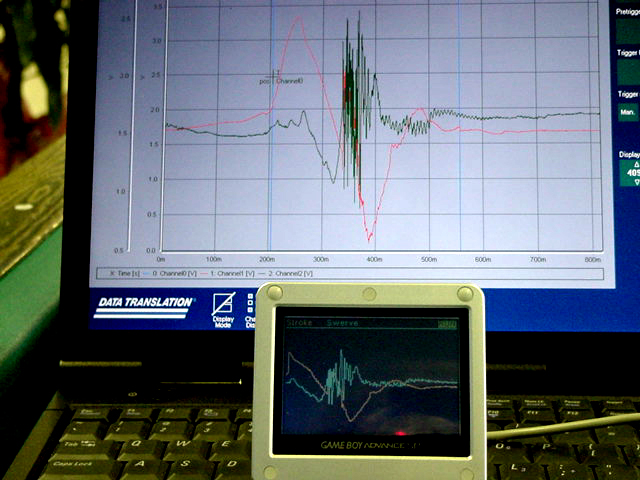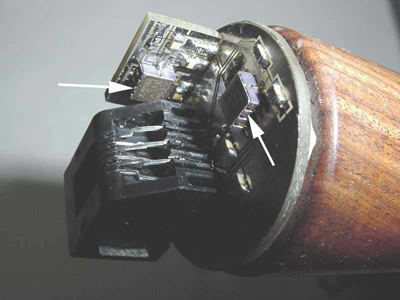
Stroke-Alyzer: A lie detector for your stroke.
You know you missed, but you don't know why. You wonder, was it bad aim, or bad stroke?
Most of us don't want to admit it, but bad stroke is most often the cause for missed shots, especially those long shots when you are trying to draw the cueball.
One night, I was watching one of the guys at the local pool hall trying to draw the ball. The harder he shot, the more he pulled his cue off line. He had no idea why he was missing, and the thought came to me, wouldn't it be neat to have a sensor on your cue, that would alert you when you swerve the cue?
By chance, I had read an article earlier that day about miniature accelerometers, the kind used to trigger the airbags in your car. I realized they could be used as the basis for a stroke detector.
I ordered some parts and built a three axis accelerometer, and stuck it to the butt of my cue with double backed foam tape. Arrows point to the sensors in the photo below:

A telephone jack connects the sensors to the outside world.
After some searching, I found a rubber end cap to mount the accelerometer circuit board, allowing you to easily install and remove the sensor package:
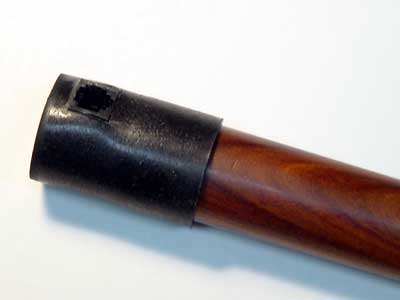
My first idea was to build an audible alert system. I called it the Stroke-Alert, and the prototype is shown here:
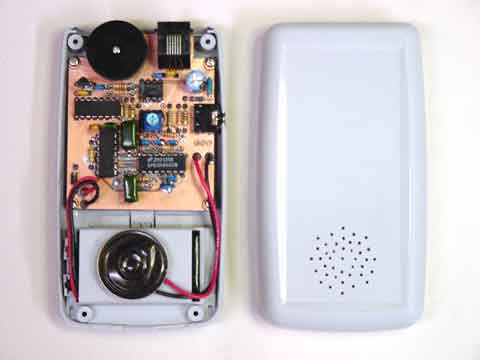
The device produces various tones, corrresponding to the straightness of your stroke. Pool hall testing verified the concept, but the tones were too fleeting to analyze. I let the house pro at the local pool hall evaluate it, and he said he was concentrating more on making the shot than listening to the tone.
During development, I connected the accelerometers to a data collection system, so I could study the signals on my laptop.
One night, I took the whole setup into the pool hall, and started shooting balls with it. The results were instantly amazing, though it took me a while to figure out what the traces meant. Studying the traces on the laptop was much better than listening to the Stroke-Alert, and I knew that smart pool players would want to have something like this.
The laptop display was great, but I knew that if I was going to sell something to pool players, it would have to be low cost and small enough to fit in your pocket. After much searching, I found that someone makes an adapter for the Nintendo GameBoy.
Here is a screen shot of the GameBoy, showing the traces when I wave the accelerometers in the air. The orange trace is the stroke, the blue trace is the swerve:
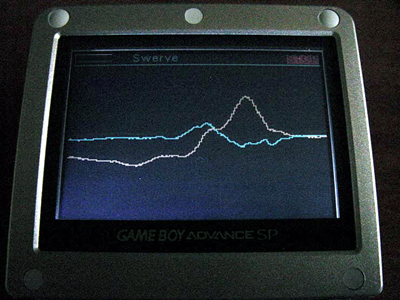
Here is a shot comparing it to my laptop system:
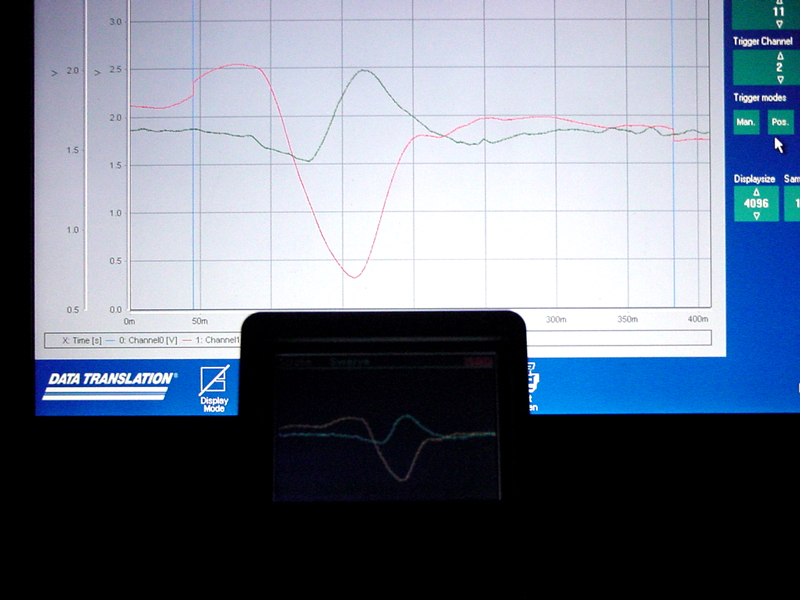
Here are a few photos I took at the pool hall. With all the detail, you can see why I was amazed
I set the GameBoy on top of the laptop, so I could take pics to compare the displays. The GameBoy display is surprisingly good, considering its low cost.
My first attempt was a miss, due to bad stroke. The "hit" is the fuzzy part in the middle. The slow oscillations afterwards show the shaft vibrating, due to an unintended off axis hit.
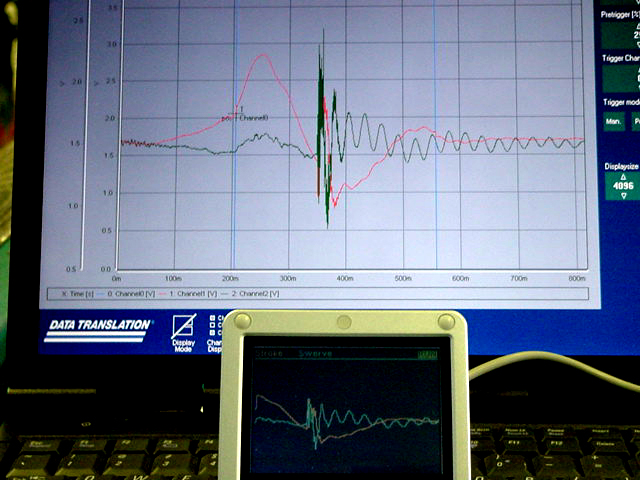
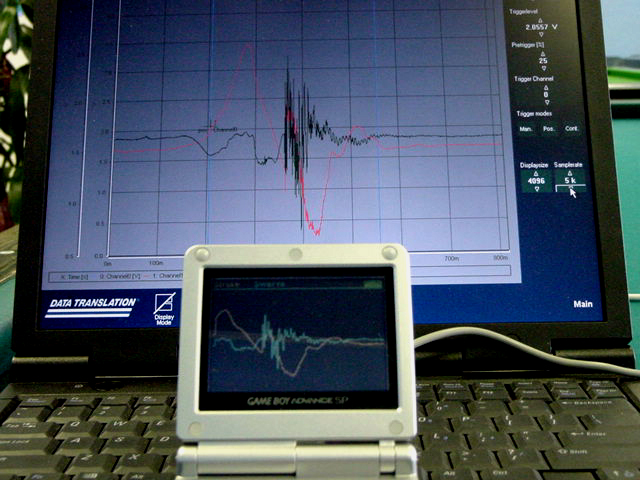
The shot below shows a straight stroke, but it also shows that I hit the ball late, as the stick was decelerating.
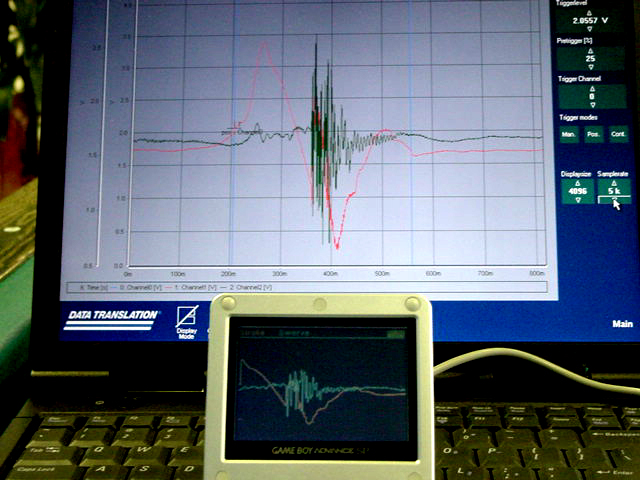
I don't know what I did here. The swerve trace is not a straight line, but the shaft is not vibrating, so I must have twisted my wrist. I don't remember if I made the ball or not.
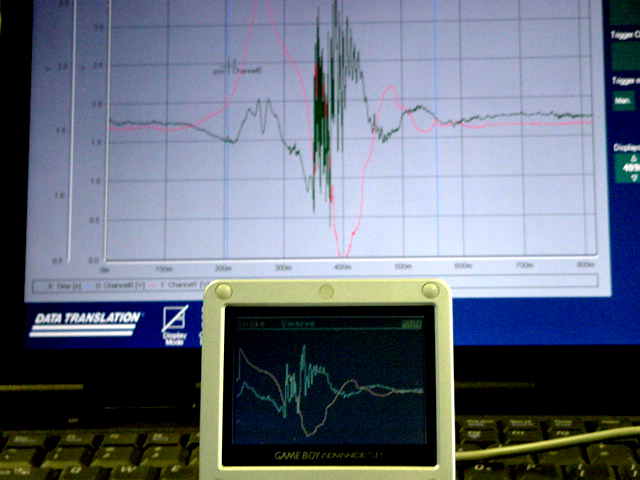
I made this shot, but the swerve trace shows a nervous glitch.
